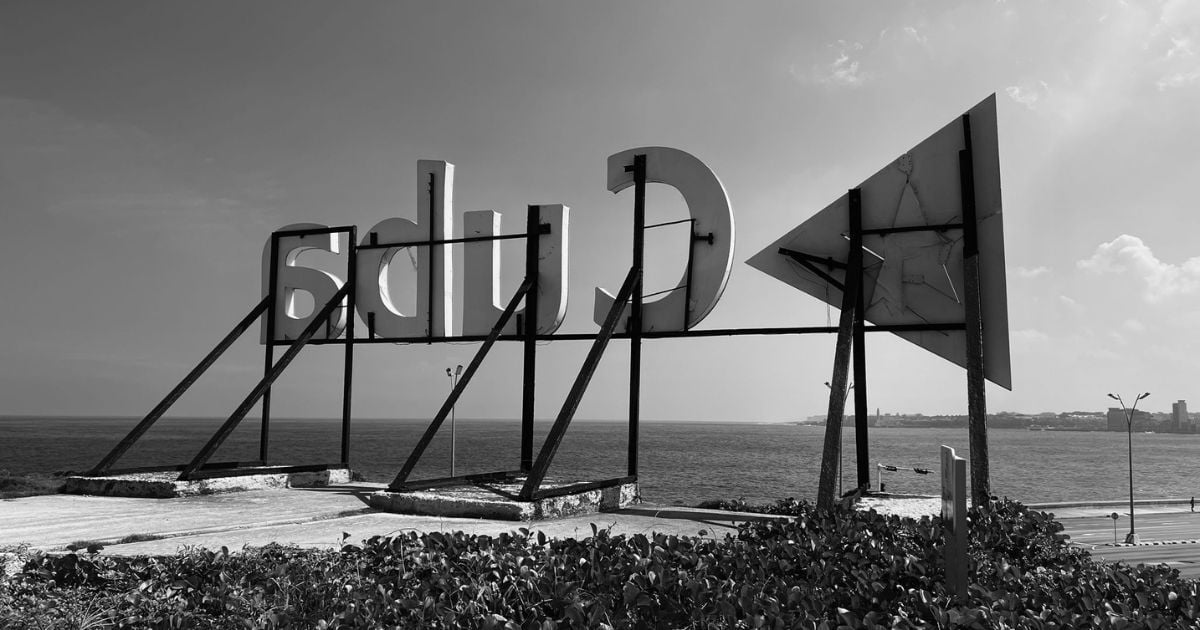
Related videos:
The Assembly of Cuban Filmmakers (ACC) concluded 2024 with a strong appeal for the defense of creative freedom and a condemnation of the censorship affecting Cuban cinema.
In a statement released on its official Facebook profile, the organization highlighted the challenges faced by independent filmmakers and called for a change in the country's cultural policies.
"Our culture can no longer be driven by the same long-standing oppressors and censors who act with impunity. The damage accumulated over their years of reign is evident," stated the ACC, directly pointing to the authorities responsible for the decline of film structures on the island.
The document outlines a number of issues affecting the sector, including the ongoing emigration of artists, the lack of exhibition spaces, financial obstacles, and the arbitrary exclusion of works and creators.
According to the Assembly, these practices reflect an institutional fear of the free exercise of ideas: "It is preferable to hide, embellish, or simplify reality, while assigning culture a merely didactic, propagandistic, or decorative function."
In this context, the organization denounced a new act of institutional violence directed against young filmmaker Orlando Mora, whose film "Matar a un Hombre" was censored at the recently concluded Havana Film Festival of New Latin American Cinema.
The event, characterized by a triumphant tone, served as a platform for a meeting between the top leaders of Cuban culture and the country's authorities.
However, the limited presence of independent filmmakers at the Festival highlighted the systematic exclusion faced by the community and evaded the real issues of Cuban cinema, such as censorship and the lack of spaces for discussion.
The ACC noted that these same authorities, the recipients of their reports and demands, continue to ignore the sector's requirements.
Despite the fact that the Cuban Constitution guarantees the right to participation and dialogue, filmmakers have received no response, highlighting a pattern of inaction that reinforces the barriers imposed on the development of independent cinema on the island.
Despite these difficulties, the ACC highlighted the work done throughout the year and mentioned the magazine "Alterna," which published two issues and served as a platform to reflect on Cuban cinema and its challenges.
Additionally, the Assembly followed up on the Fund for the Promotion of Cuban Cinema, noting irregularities in its management.
The organization warned about attempts to manipulate this mechanism by cultural authorities, stating that “to manipulate its meaning, violate its regulations, and interfere with its results serves only to establish a reverse engineering of censorship and silence inconvenient projects.”
The ACC also dedicated space to honor the figures of Cuban cinema who passed away this year, including Sergio Giral, Víctor A. Cedeño, Jonal Cosculluela, Carlos Massola, Inima Fuentes, and Corina Mestre, reaffirming its commitment to the cinematic memory of the island.
Looking to the future, the Assembly reaffirmed its responsibility as filmmakers and artists towards Cuban society: “Our films cannot echo that self-destructive evasion,” they stated, emphasizing that culture plays a crucial role in the transformation of the country.
In a final call, they stated: “Inertia or silence cannot be the way forward. It is essential to reflect, propose, transform, and dream.”
The statement concludes with a hopeful yet firm outlook on the commitment of independent filmmakers to the struggle for a censorship-free cinema that reflects the realities of Cuba and contributes to the necessary change for its society.
Frequently Asked Questions about Censorship and Creative Freedom in Cuban Cinema
What does the Cuban Filmmakers' Assembly report about censorship in Cuban cinema?
The Assembly of Cuban Filmmakers condemns the censorship and repression faced by independent filmmakers in Cuba and demands a change in cultural policies that impact Cuban cinema. The organization criticizes the authorities for the exclusion of works and creators, as well as for the manipulation of mechanisms such as the Cuban Film Development Fund.
Why was the film "Killing a Man" censored at the Havana Film Festival?
The film "Killing a Man" was censored due to its critical content regarding the Cuban regime, addressing themes such as undercover homosexuality within the National Revolutionary Police and violence in society. These topics are considered taboo by the Cuban government, which led to its exclusion from the festival.
What challenges do independent filmmakers in Cuba face according to the ACC?
Independent filmmakers in Cuba face multiple challenges, including censorship, the emigration of artists, a lack of exhibition spaces, and financial obstacles. The Assembly of Cuban Filmmakers indicates that these difficulties reflect an institutional fear of free expression of ideas and a tendency to hide or oversimplify reality through censorship.
How has the artistic community reacted to censorship and repression in Cuba?
The artistic community, including the Assembly of Cuban Filmmakers, has strongly denounced censorship and repression in Cuban cinema. Artists and filmmakers have voiced their solidarity with those affected and have called for addressing injustices and promoting artistic freedom on the island.
Filed under: